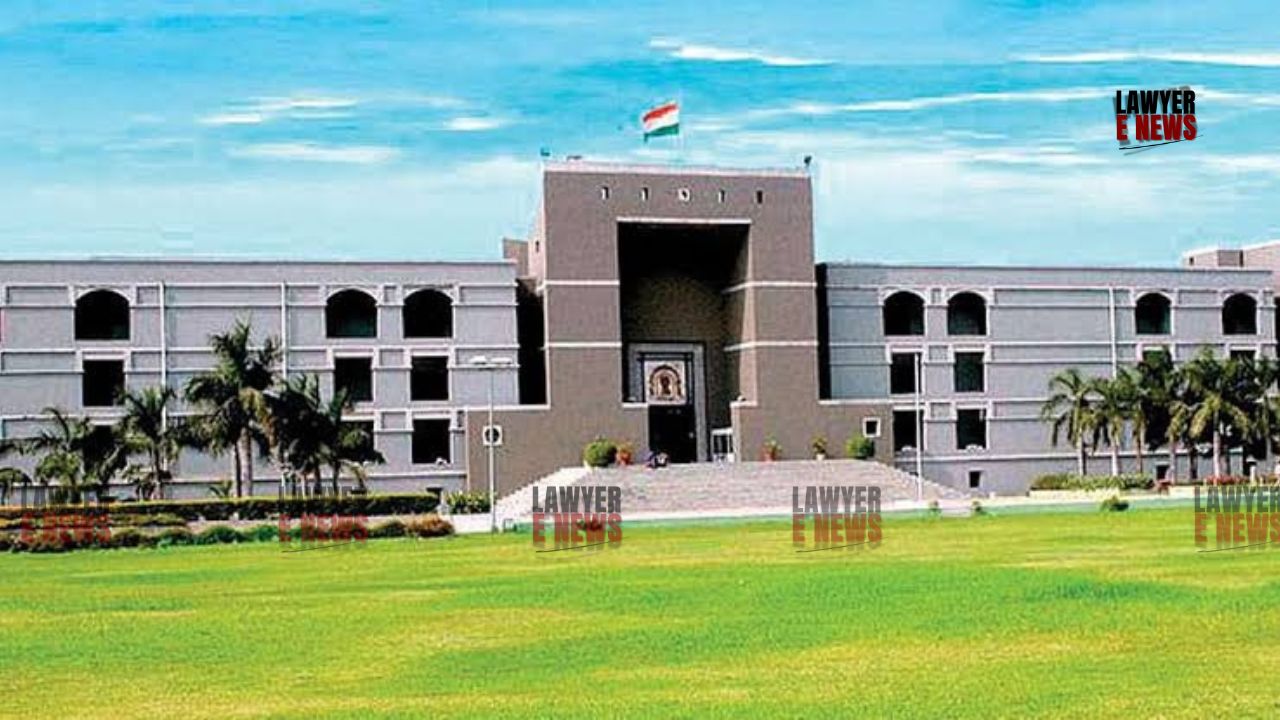-
by Admin
15 February 2026 5:35 AM



In a significant decision, the High Court of Gujarat has appointed Anjuben Karansinh Dodiya as the guardian and manager of the movable and immovable properties of her husband, Karansinh Rajusinh Dodiya, who has been in a comatose state since 2019. The court invoked its extraordinary jurisdiction under Article 226 of the Constitution, citing the absence of specific legislative provisions for appointing guardians for individuals in a vegetative state.
Karansinh Rajusinh Dodiya, the patient, was detected with dengue in 2019 and subsequently suffered a brain hemorrhage following a fall, which led to severe medical complications. Despite undergoing decompressive craniectomy surgery, Dodiya has remained unconscious, bedridden, and unable to communicate for over five years. His family, including his wife Anjuben and their two sons, have been collectively managing his care and finances, facing significant challenges due to his condition.
The court noted the severe and prolonged nature of the patient’s condition, as confirmed by medical reports and a committee of doctors. The family, particularly Anjuben, has been providing round-the-clock care and incurring substantial medical expenses. The court observed the family’s financial strain and the practical difficulties in managing the patient’s properties and bank accounts without legal authority.
Justice Sangeeta K. Vishen emphasized the doctrine of “parens patriae” in her judgment, which allows the court to act as a guardian for those who cannot care for themselves when no specific legislative provisions exist. The court referenced similar cases, including the Kerala High Court’s decision in Shobha Gopalakrishnan vs. State of Kerala and the Madras High Court’s ruling in Sairabanu Mohammad Rafi vs. State of Tamilnadu, to underline its authority to appoint guardians in such circumstances.
Justice Vishen stated, “In the absence of any legislative enactment providing for the appointment of a guardian for a person in a comatose state, the court’s jurisdiction under Article 226 of the Constitution of India springs up, akin to ‘parens patriae’ jurisdiction.” She further added, “The petitioner no.1 – Anjuben Karansinh Dodiya, being the wife, is appointed as the guardian and manager to deal with the movable and immovable properties of the patient.”
This landmark judgment not only addresses the immediate needs of Karansinh Rajusinh Dodiya’s family but also sets a significant precedent for similar cases in the future. By appointing a guardian and manager for a patient in a vegetative state, the court has filled a crucial gap in the legal framework, ensuring the welfare and proper management of the patient’s affairs. This decision highlights the judiciary’s role in upholding justice and providing necessary relief in the absence of specific legislative measures.
Date of Decision: July 22, 2024
Anjuben Karansinh Dodiya vs. State of Gujarat
